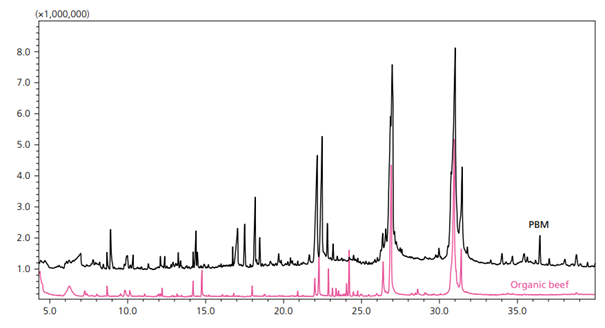Panel discussion on...
Cognitive health
When maintaining a cognitive health supporting diet is difficult, supplements may help
Diet is one of those things everybody knows affects our general health and wellbeing. This is no different for cognitive health. The MIND-diet, short for Mediterranean-DASH Diet Intervention for Neurodegenerative Delay, is one of the recent developments in nutrition and cognitive health one should pay attention to. It combines elements of the Mediterranean and DASH (Dietary Approaches to Stop Hypertension) diets to promote brain health. It emphasizes the consumption of plant-based foods such as leafy greens, berries, nuts, whole grains, and olive oil, while limiting red meat, butter, cheese, and sweets. Research has shown that adhering to the MIND-diet may reduce the risk of cognitive decline. The MIND-diet provides a holistic approach to nutrition, offering a wide range of nutrients that work synergistically to support overall brain health. Adhering at least somewhat to the MIND-diet can be beneficial as it encourages a more balanced and sustainable eating pattern that not only supports cognitive function but also promotes general well-being (1). However, we all know that it may be difficult to entirely change dietary habits, for a variety of reasons. In those cases, dietary supplements may be helpful, it may also give inspiration on what supplements to consider. E.g. the COSMOS study showed that consumption of multivitamins by seniors led to improved cognitive performance after three years (2).
Although cognitive function is an important health target across markets, there are regional differences in what the consumer perceives with cognitive function. In Asian countries like Japan and South-Korea, relief of stress and anxiety, improved sleep quality, and enhanced overall mental well-being are main drivers. There, consumers prefer supplements containing traditional herbs and natural ingredients such as ashwagandha and ginseng. In Western countries, consumers are looking for products that support memory function and cognitive performance. These consumers turn to supplements that have a fairly long scientific history in this field such as omega-3 fatty acids and vitamins (3). The European market is not homogenous either, German consumers place a high emphasis on memory enhancement and cognitive performance, particularly among the aging population and professionals seeking to maintain mental sharpness, while Italian consumers often prioritize holistic well-being, which includes stress relief, mood enhancement, and overall mental wellness (4).
As multivitamins have taught us, there is a certain benefit in having multi-benefit products. At the same time, such an approach may make it difficult for a consumer looking for a specific benefit to find what he/she is looking for. Also here, there are regional differences. In North America and countries like Germany and the UK, consumers seek products with specific, targeted benefits, backed by scientific research. This translates into a preference for single-benefit supplements. Asian consumers tend to prefer a holistic approach, influenced by traditional medicine practices, while Latin American consumers often favour supplements that address a range of health concerns. For both regions this translates into a preference for multi-benefit supplements (5).
Besides regional differences, different age groups tend to consume brain related supplements differently. In a U.S. based study of over 2000 people, the percent of people, who took supplements for brain health, increased gradually from Gen-Z& Millennials (age 18-38) to Silent & Greatest (age 74 and older) (6). In a follow-up study of over 1000 adults aged 50 and above, one-fifth (21%) consumed dietary supplements for their brain health. The most reported reasons for taking a dietary supplement for brain health were “Maintain/improve memory” (71% of responders) and “Maintain/improve mental sharpness” (61% of responders). Every tenth (12%) participant said they take a supplement to delay dementia. Interestingly, adults aged 65 and older were significantly more likely to report currently taking dietary supplements than those aged 50 to 64 (83% vs. 74%). Women were also more likely to take dietary supplements than men (85% vs. 71%) (7). Moreover, it has also been reported that women are twice as likely to start brain health related dietary supplement use in the future compared with men, if they are not currently using any. In general, besides Female gender, perceived susceptibility to brain problems, receiving recommendation from others, and perceived benefits of brain heath related dietary supplements have been significantly associated with future likelihood of supplement use among nonusers (8).
Products from herbs such as ashwagandha and passionflower, and B-vitamins and omega-3 are obvious choices for cognitive health, in particular, as far as memory and stress and anxiety are concerned. The gut-brain-axis has also highlighted the importance of microbes in cognitive health. In this perspective, probiotics are increasingly positioned as supplements to aid in the management of stress and mood. A recent meta-analyses included 45 studies on probiotics and stress/anxiety and concluded that lactobacilli and especially the combination of lactobacilli and bifidobacteria could aid in the management of anxiety and depression (9).
Thus, while diet leads the way, supplements are valuable complements or alternatives if dietary changes are not realistic.

Figure 1. Overlaid Representative Chromatograms for PBM (black) and Organic Beef (pink) (6).
Panelists
References and notes
- R. P. Sawyer, J. Blair, R. Shatz, J. J. Manly, and S. E. Judd, "Association of adherence to a MIND-style diet with the risk of cognitive impairment and decline in the REGARDS cohort," Neurology, vol. 103, no. 8, p. e209817, 2024.
- L. K. Yeung et al., "Multivitamin Supplementation Improves Memory in Older Adults: A Randomized Clinical Trial," (in eng), The American journal of clinical nutrition, vol. 118, no. 1, pp. 273-282, Jul 2023, doi: 10.1016/j.ajcnut.2023.05.011.
- Credence Research, "Cognitive Health Supplement Market," Credence Research, 69340, 2025. [Online]. Available: Cognitive Health Supplement Market Size, Growth and Forecast 2032
- Grand View Research, "Europe Brain Health Supplements Market Size," Grand View Research, 2024. [Online]. Available: Europe Brain Health Supplements Market Size | Report, 2030
- A. Northrop and A. Smith. "Your Guide To The Best Brain Supplements." Forbes. https://www.forbes.com/health/supplements/best-brain-supplements/ (accessed 21st January, 2025).
- L. Mehegan and G. Rainville. "2019 AARP Brain Health and Dietary Supplements Survey" Washington, DC: AARP Research, June 2019. https://doi.org/10.26419/res.00318.001
- L. Mehegan and C. Rainville. "A Look at Brain Health and Dietary Supplements: 2021 AARP Omni Survey of Supplement Use Among Adults Age 50 and Older." AARP Research; 2021. https://doi.org/10.26419/res.00318.003
- P. Prajapati, E. Holmes, and Y. Yang. " Individual Beliefs and Experiences With Brain Health Dietary Supplements in the United States", J Acad Nutr Diet, vol 124, no. 9, pp.1206-1213, 2024. https://doi.org/10.1016/j.jand.2024.03.010
- Y. Yang, L. Yang, M. Wan, D. Pan, G. Sun, and C. Yang, "Assessment of optimal combinations of therapeutic probiotics for depression, anxiety, and stress," Psychol. Med., vol. 54, no. 10, pp. 2547-2561, 2024, doi: 10.1017/S0033291724000679.

































